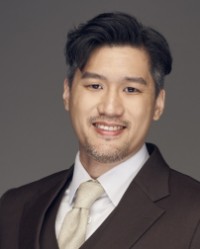Corporate Immigration 2025
Singapore
Trends and Developments
Positioning the Nation and Its Human Capital
Singapore is a renowned international and regional business hub. Consistent with this, Singapore has always been a strong proponent of free trade agreements and foreign investment. The island nation prioritises ease of doing business – which also means being open to foreign talent.
Unlike its much larger neighbours, Singapore has next-to-no natural resources besides its population, and human capital is critical to its success. Singapore’s immigration policies therefore seek to strike a delicate balance between strengthening and enhancing its local workforce, while still attracting key foreign talent at all levels.
Because Singapore has a small and increasingly ageing working population, foreign talent is integral to its workforce – at all levels of employment. Excluding migrant domestic workers, the foreign workforce had risen to over 1.2 million as at December 2024. This makes up more than a quarter of Singapore’s working population of over four million, and with migrant domestic workers included, the proportion increases to well over a third of Singapore’s workforce.
Increasing support for the local workforce
In recent years, and especially since the COVID-19 pandemic, Singapore has focused on developing and upskilling its local workforce, seeking to ensure that this group of individuals has fair opportunities in the job market.
There is sound reasoning behind increasing support for hiring locally. After all, while foreign talent is crucial, it must remain complementary to a strong local workforce. More importantly, Singapore has to ensure that in years to come, its local workforce remains globally relevant and competitive. The local workforce cannot lag behind foreign talent. In spite of the relatively high proportion of foreign talent in Singapore, local talent still forms the majority of Singapore’s workforce.
If local talent is in demand globally, that is yet another reason for businesses to make Singapore their home or hub. Increasing support for its local workforce is therefore in line with Singapore’s position as a regional business hub.
The balancing act
The difficulty lies in how Singapore should marry two often divergent interests, namely, increasing the quality of and opportunities for local talent while still attracting top foreign talent.
Shifts in Singapore’s immigration policies over the years have been nuanced and incremental, but Singapore’s present stance is essentially that the local workforce should generally be seen as the first port of call. Foreign talent is still very much welcome, but only if it stands apart from the available locals, whether in terms of the skill and knowledge of the employee in question or their ability to fill a need inadequately met by locals.
As such, the foreign talent admitted is expected to be better than the average local, whether in terms of qualifications, connections or expertise. The integration of such foreign talent into Singapore’s workforce should then result in foreigners imparting their skills to locals, helping them to “level up”, as Singapore’sMinister for Manpower has put it.
To help achieve this, there has been a shift in the type of foreign talent that Singapore is looking for – from those who are equivalent to locals to those who can add value above and beyond what the average local is capable of, or who meet a need that the locals cannot or will not meet. For such foreign talent, Singapore remains more than open.
Higher qualifying salaries for Employment Passes and S Passes
Of the work passes available to foreigners, two common passes are the Employment Pass (EP), suitable for professionals, managers, executives and technicians (PMETs); and the S Pass, suitable for skilled workers such as associate professionals and technicians (APTs). The S Pass offers employers the flexibility to hire skilled technicians who may not meet the EP criteria, as addressed further below.
Historically, the minimum salary needed to qualify for an EP has trended close to Singapore’s median monthly income. The minimum qualifying salary for an S Pass has similarly trended close to the 20th percentile of monthly income. Revisions to the qualifying salaries have been periodic but broadly in keeping with these trends.
Moving forward, however, and aligned with Singapore’s efforts to develop the local workforce and only admit top-quality foreign talent, foreigners are now expected to earn at least as much as the top one-third of local PMETs to qualify for an EP. Prospective S Pass holders are similarly expected to draw a salary commensurate with the top one-third of local APTs.
Further nuances to the qualifying salaries were also introduced near the end of 2020, allowing for better benchmarking based on the employer’s industry and the candidate’s experience. Higher qualifying salaries are now required for EP and S Pass candidates seeking employment in the financial sector. Higher qualifying salaries are also required for more experienced and older candidates hoping to secure an EP or S Pass.
The applicable qualifying salary ranges for new EP and S Pass applications are summarised below.
- EPs: From January 2025, the minimum qualifying monthly salary for the financial services sector was increased to at least SGD6,200, up from the previous SGD5,500. For other sectors, this was increased from SGD5,000 to SGD5,600.
- S Pass: For S Passes, the minimum qualifying monthly salary for the financial services sector is SGD3,650, and this will be increased to SGD3,800 in September 2025. For other sectors, the prospective increase come September 2025 will be from SGD3,150 to SGD3,300.
New COMPASS framework for assessing EP applications
September 2023 also saw the introduction of an additional framework for the assessment of EP applications, reflecting Singapore’s more targeted and calibrated approach to attracting foreign talent. It is a points-based system that gives businesses greater clarity and certainty for manpower planning, potentially enabling employers to select high-quality foreign professionals while improving workforce diversity and building a strong local core.
The Complementarity Assessment (COMPASS) framework now assesses EP applications not only on the basis of the individual’s salary and qualifications (previously, these were essentially the only criteria), but also based on the company’s diversity and support for local employment. An application can earn up to 20 points per criteria (for a theoretical maximum of 80 points), and the application must have at least 40 points to pass muster under the framework, with bonus points applicable (see below).
Exceptions apply, and businesses bringing in intra-corporate transferees or high-value employees earning above SGD22,500 per month do not have to qualify under COMPASS.
Incentives to advance Singapore’s economic priorities
The bonus points awarded under the COMPASS framework follow Singapore’s strategic economic priorities, with foreign talent capable of supporting these being particularly welcome.
Under the COMPASS framework, foreign individuals applying for jobs for which there is a shortage of qualified local candidates will earn up to 20 bonus points, known as the “skills bonus”. Updated periodically, these jobs are currently within the agritech, financial services, green economy, healthcare, infocomm technology (including artificial intelligence, cybersecurity, software and digital forensics), maritime and semiconductor industries.
Firms that are partnered with the government on specific activities also stand to earn up to ten bonus points. These activities include investment, innovation and internationalisation, being partnered with a statutory board in charge of economic development, enterprise and entrepreneurship, infocomm technology, maritime matters and tourism. A firm endorsed as a strong partner that strengthens local workforce development also stands to earn up to ten bonus points. This is the “strategic economic priorities bonus”.
Expansion of the M-SEP scheme
The Manpower for Strategic Economic Priorities (M-SEP) scheme gives businesses the flexibility to temporarily hire additional S Pass and work permit holders, at up to 5% of their base workforce head count and subject to a cap of 50 workers per firm. To qualify, firms must first participate in at least one of the shortlisted initiatives of the relevant economic agencies (including the Economic Development Board (EDB), Enterprise Singapore, Infocomm Media Development Authority (IMDA), Maritime and Port Authority of Singapore (MPA), and Singapore Tourism Board (STB)), or fulfil specified economic criteria, as listed on the Ministry of Manpower’s M-SEP information page. Firms must also commit to developing their local workforce by:
- increasing their net hiring;
- training their workers in a manner that results in job enhancements; or
- being an industry leader with training excellence.
From 1 May 2025, the M-SEP scheme has been enhanced to better support firms that contribute to Singapore’s strategic economic priorities and local workforce development. The expansion entails adding more eligible programmes and pathways for firms to satisfy the eligibility conditions for M-SEP and increasing the support period of the M-SEP scheme from two years to three years.
Revised passes for top-tier talent
Singapore’s efforts to attract global top-tier talent can also be seen from the enhancements it has made to existing higher-level passes, and the introduction of new passes catering to elite talent. Holders of these passes are granted a longer period of stay in Singapore. Depending on the pass, they could also have multiple appointments, and their spouses could also have an easier time securing employment in the country. With greater benefits, these individuals might then consider making Singapore their permanent home, enhancing the local talent pool.
In this respect, the top 10% of EP holders or overseas foreign professionals who earn at least SGD22,500 per month can apply for the Personalised EP (PEP). This EP is personal to the employee rather than being tagged to a specific employer, and allows the holder to stay in Singapore, even without a job, for up to six months. Entrepreneurs who have started or intend to start a venture-backed company, or one that owns innovative technologies, could also apply for the EntrePass, which has no minimum qualifying salary.
Experienced tech professionals with skills on the COMPASS Shortage Occupation List could be eligible for a five-year EP, more than double the two-year duration for first-time EP applicants. Tech entrepreneurs, leaders and technical experts could also be eligible for the Tech.Pass, which allows holders to start, be employed by or hold directorships in more than one company.
The pass that affords the most benefits is the Overseas Networks and Expertise (ONE) Pass. Suitable for top talent across various sectors, candidates who earn at least SGD30,000 per month or those who have outstanding achievements could be eligible for this five-year pass, which also affords holders the flexibility of concurrently starting and working for multiple companies at once. Spouses of ONE Pass holders with Dependant Passes will also be able to work based on a letter of consent, without having to obtain their own work pass in Singapore (which is otherwise necessary for Dependant Pass holders of all the other work passes, save for Dependant Pass holders who are also business owners).
The Global Investor Programme
Beyond transient work passes, Singapore is also attracting premium foreign talent by offering a clearer and faster route to Singapore permanent residency. The Global Investor Programme attracts high-value investors and business leaders. As is to be expected though, meeting the criteria for permanent residency through the Global Investor Programme is no mean feat, with the criteria having become even more difficult to satisfy in recent years.
As it stands now, this programme requires the individual (who must meet stringent qualifying criteria under one of four profiles) to either invest a minimum of SGD10 million in a new or expanding business operation, invest SGD25 million in select funds or establish a Singapore-based family office with SGD200 million in assets under management. Of the SGD200 million, a minimum of SGD50 million must be transferred into Singapore and deployed in specific investment categories.
It is worth noting that significant changes were made to these thresholds in 2023, and the EDB (which administers this programme) expressly stated that it had made these changes to attract only top-tier business owners who are looking to establish roots in Singapore.
To be clear, longtime work pass holders are also free to apply for permanent residency, but this path to obtaining permanent residency is much more difficult.
Strengthening the Fair Consideration Framework
Switching focus to the local workforce, businesses should note that under Singapore’s Fair Consideration Framework and its Workplace Fairness Act 2025 (which is slated to come into force in 2026 or 2027), they are obliged to advertise job openings to the local workforce on the government jobs portal MyCareersFuture for at least 14 days before making an EP or S Pass application and fairly consider all candidates who apply. This is unless a specific exception applies.
This should not be taken as a mere box-ticking exercise. Employers who just go through the motions of advertising and do not review the applications, or who have already pre-selected a foreign candidate, can – if caught – find themselves barred from hiring foreign employees and/or barred from renewing the passes of existing foreign employees.
The practical consequences can therefore be quite severe. In recent years, Singapore has also enhanced the penalties by extending the debarment period from 6 to 12 months, or even 24 months for egregious cases. In recent years, employers or key personnel who have falsely declared that they have considered all local applicants fairly before applying for a pass have also faced criminal prosecutions.
Prioritising locals in retrenchment exercises
With retrenchment exercises on the rise yet again, it is also worth noting that employers in Singapore are expected to conduct such exercises in a way that does not result in a lower proportion of local employees thereafter. Those who do not comply with the Tripartite Advisory on Managing Excess Manpower and Responsible Retrenchment (which requires this, among other things) could find themselves under investigation, or on the receiving end of administrative sanctions and negative publicity.
In the majority of cases, where fair and objective criteria are used in selecting employees to be retrenched, the proportion of local employees should not change. This measure therefore appears to be targeted at the small proportion of businesses that might prefer to retain foreigners at the expense of locals.
The road ahead
Singapore has now mapped out its immigration policies for the next few years. Its intent is clear – foreign talent inferior to or only on a par with local talent will now have a harder time finding work in Singapore. However, the doors have opened even wider for top-tier talent, and for those with skills that align with Singapore’s strategic priorities.
A keen understanding of where Singapore is headed, and the dynamics at play in this small island nation, will therefore serve a business well.
TSMP Law Corporation
6 Battery Road
Level 5
Singapore 049909
+65 6534 4877
tsmp@tsmplaw.com www.tsmplaw.com




